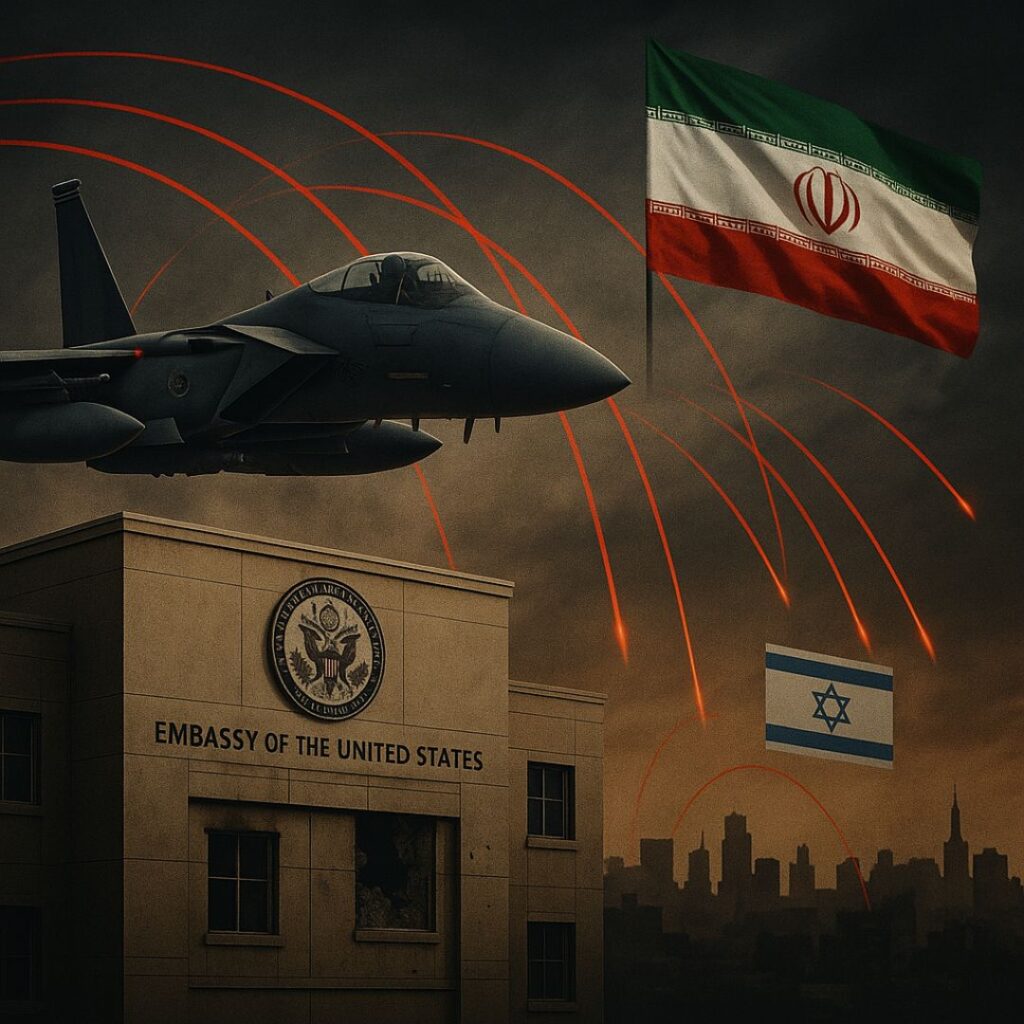A diplomatic crossroads. Heightened stakes. A region on edge.
The Iran–U.S. Nuclear Standoff
Tensions between Iran, Israel, and the United States are rising again. Negotiations are stuck, embassies are emptying, and military warnings are flying. Here’s where things stand.
- Trump signals diplomatic breakdown and vows to stop Iran’s nuclear program by any means
- Iran rejects the latest U.S. proposal and says it does not meet their basic demands
- Iran says it obtained sensitive Israeli military documents as a strategic warning
- Iran warns it will strike U.S. bases if attacked
- U.S. orders staff out of embassies in Iraq, Bahrain, and Kuwait and deploys jets
- Ongoing indirect talks and mediation offer a faint diplomatic opening
The U.S. Proposal and Why It Failed
The latest U.S. offer includes a halt to all uranium enrichment, construction of civilian nuclear power plants, and a regional enrichment consortium. It does not lift economic sanctions. For Iran, the proposal was unacceptable on several fronts: it demanded the end of enrichment activities Iran considers legal under the Non-Proliferation Treaty, including enrichment for medical isotopes and civilian energy. From Washington’s view, the deal would prevent weaponization and offer oversight. From Tehran’s view, it repeated past conditions while offering no trust-building relief.
The Broken Context: JCPOA and Fallout
This standoff traces back to the U.S. withdrawal from the JCPOA in 2018. The deal, signed under the Obama administration, lifted sanctions in exchange for limits on Iran’s nuclear activities and international inspections. When the Trump administration pulled out, Iran gradually stepped away from its obligations. The result: collapsed trust, reimposed sanctions, and rising enrichment levels on both sides of the 2020s.
Iran’s Position and Strategic Response
Iran dismissed the new proposal as a “non-starter.” Officials cited the continued economic sanctions and the demand to give up sovereign enrichment rights. Under the NPT, Iran maintains it has the right to enrich uranium for peaceful medical and energy purposes. Since 2019, sanctions have cost Iran over $1.5 trillion in lost oil revenue. At the same time, Israel has repeatedly threatened strikes. In response, Iran stated it had acquired sensitive Israeli nuclear and defense documents. It has not published them, but announced the possession to shift regional perception.
The Record So Far
Iran has never built or tested a nuclear weapon, despite repeated Western claims over decades that it was on the verge of doing so. Enrichment levels have fluctuated, but no weaponized program has been confirmed. By contrast, Israel is widely understood to possess a nuclear arsenal, though it has never formally acknowledged it.
Military Warnings and Real Movements
On June 11, Iran’s Defense Minister warned that if conflict is imposed, all U.S. bases in the region would be targeted. The language was conditional but clear. Hours later, the U.S. State Department ordered non-essential personnel to evacuate embassies in Iraq, Bahrain, and Kuwait. U.S. fighter jets were seen repositioning.
What Comes Next
Indirect talks led by U.S. envoy Steve Witkoff and quiet mediation from Oman remain active. Progress is limited. Regional actors, including Russia, China, and India, observe developments through the BRICS lens but are not direct participants in the negotiations. For now, the situation remains a standoff: both sides continue to frame their moves as defensive, while preparing for a reality where diplomacy grows more fragile each day.
When the world gets louder, structure matters more. Build it before you need it.

